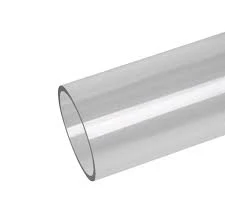Дек . 19, 2024 03:08 Back to list
perforated pvc pipe
Understanding Perforated PVC Pipe Benefits and Applications
Perforated PVC pipe has emerged as a popular choice in various applications ranging from drainage systems to agricultural uses. Its unique design, featuring holes along the length of the pipe, allows for effective filtration and drainage. In this article, we will explore the definition, benefits, and common applications of perforated PVC pipe, helping you understand why it is a preferred option in many industries.
What is Perforated PVC Pipe?
Perforated PVC pipe is a type of plastic piping that is designed with a series of holes or slots. These holes are strategically placed to allow water and other fluids to enter or exit the pipe while providing support and strength. The perforations facilitate drainage, making it an excellent choice for various water management applications. The use of PVC (polyvinyl chloride) as a material adds durability and resistance to corrosion, making it suitable for both above-ground and underground installations.
Key Benefits of Perforated PVC Pipe
1. Effective Drainage The primary advantage of perforated PVC pipe is its ability to efficiently drain excess water. This makes it ideal for applications such as French drains, stormwater management systems, and agricultural drainage, where managing water runoff is critical.
2. Durability PVC is a tough material that is resistant to chemicals, corrosion, and UV rays. This durability ensures that perforated PVC pipes can withstand harsh environmental conditions, making them a long-lasting solution for drainage needs.
3. Lightweight and Easy to Handle Compared to traditional materials like metal or concrete, perforated PVC pipe is lightweight. This feature makes transportation, installation, and maintenance easier, which can significantly reduce labor costs during construction projects.
4. Flexible Design Perforated PVC pipes are available in various sizes and configurations, which allows for customization based on the specific requirements of a project. This adaptability is especially beneficial in complex installations where specific drainage patterns are needed.
perforated pvc pipe

5. Cost-Effectiveness Although the initial cost of purchasing perforated PVC pipe may be higher than some alternative materials, the long-term savings due to its durability and low maintenance requirements make it a cost-effective choice. Additionally, the efficiency of water management systems using this type of pipe can lead to reduced water-related issues and potential damage costs.
Applications of Perforated PVC Pipe
1. Agricultural Drainage Farmers often utilize perforated PVC pipe in their fields to manage excess water and prevent waterlogging. The effective drainage helps to maintain healthy soil conditions, enhances crop yields, and minimizes the risk of plant diseases.
2. French Drains These systems are designed to redirect groundwater away from specific areas, such as basements and foundations. Perforated PVC pipes are the optimal choice for these applications due to their ability to collect water and allow it to flow away efficiently.
3. Landscaping and Erosion Control In landscaping projects, perforated PVC pipes are used to manage runoff and prevent erosion. They can be integrated into various designs to channel water away from flower beds or ornamental gardens.
4. Stormwater Management Systems Cities and municipalities often use perforated PVC pipes in stormwater systems to reduce flooding and manage water flow during heavy rainfall. These systems allow for the absorption and drainage of excess stormwater, promoting better urban water management.
5. Septic Systems Perforated PVC pipes are also used in the drainage fields of septic systems, facilitating the distribution of effluent while allowing for natural soil filtration.
Conclusion
Perforated PVC pipe offers a wide range of benefits that make it an essential component in various drainage and irrigation systems. Its durability, effective drainage capabilities, and versatility make it an ideal choice for agricultural, landscaping, and municipal applications. By understanding its advantages and applications, engineers, landscapers, and builders can make informed decisions when selecting materials for their projects, ultimately leading to more efficient and sustainable water management practices.
-
Durable PP Rigid Sheet: Lightweight, Chemical Resistant Solutions
NewsAug.21,2025
-
PVC Grey Sheet for Extraction: Chemical Resistant & Durable
NewsAug.19,2025
-
Durable PVC Pipe Fittings for Plumbing & Irrigation Needs
NewsAug.18,2025
-
HDPE Steel Belt Reinforced Spiral Corrugated Pipe | High Strength
NewsAug.17,2025
-
HDPE Pipe Fittings: Durable, Leak-Proof Solutions
NewsAug.16,2025
-
Premium CPVC Sheet: High-Temp & Chemical Resistant Solutions
NewsAug.15,2025

